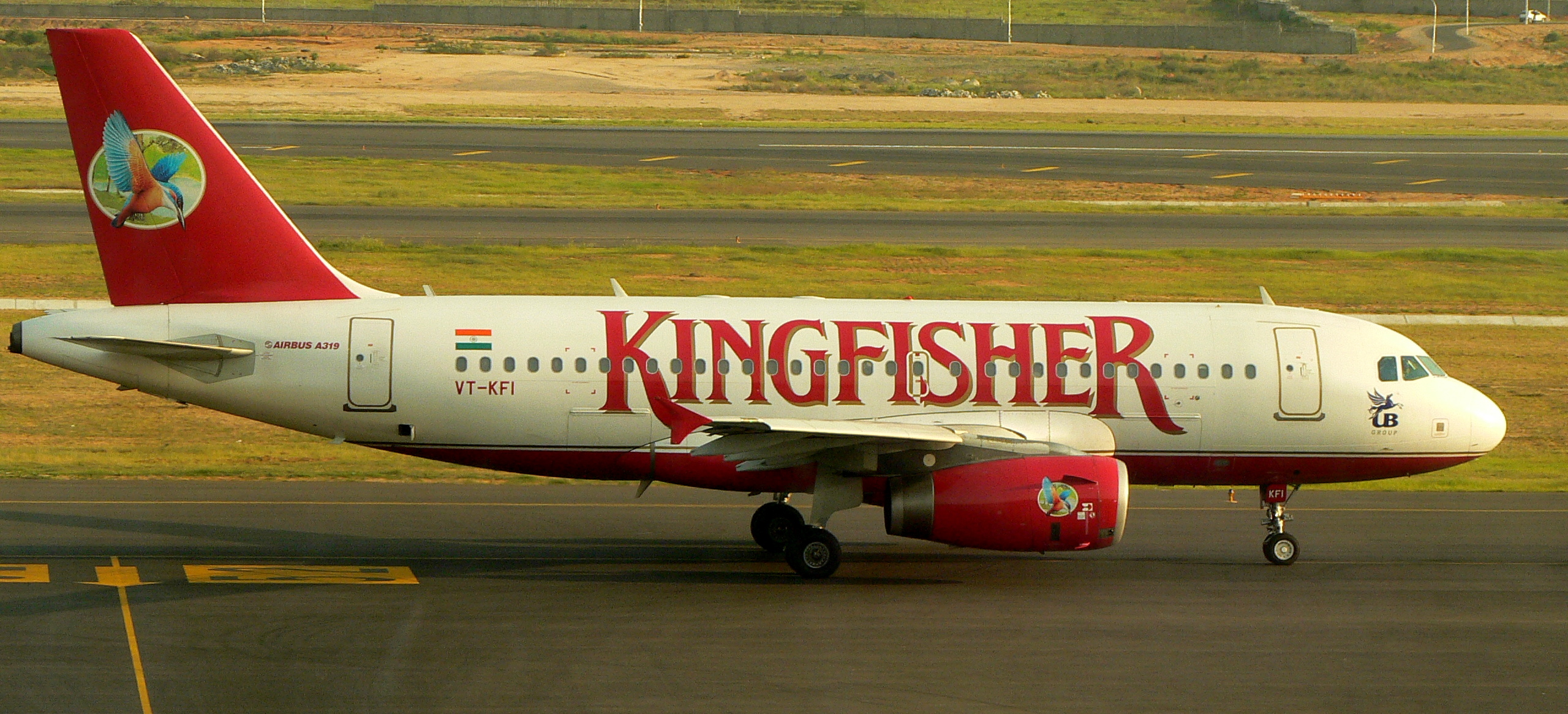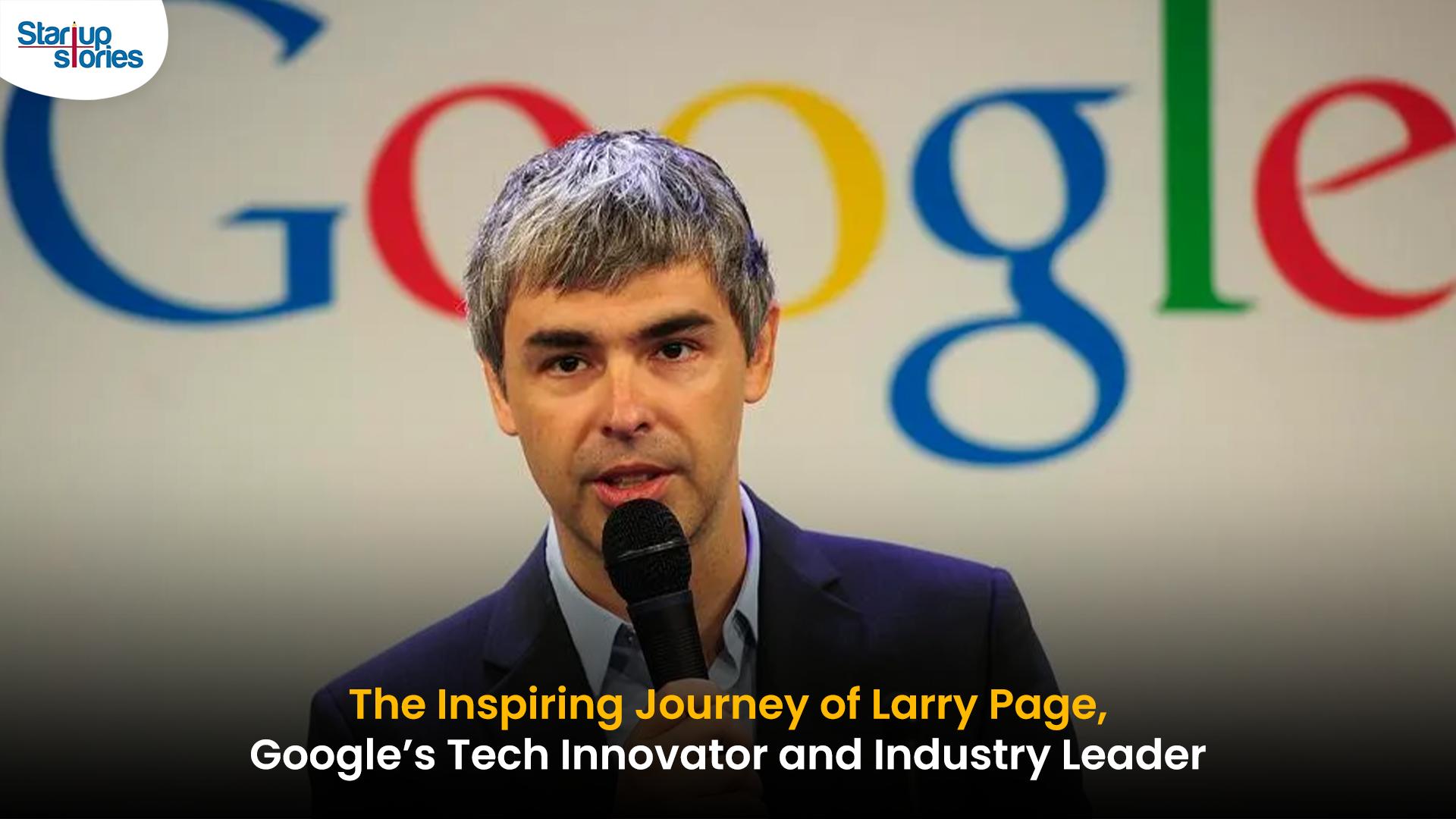Entrepreneur Stories
Vijay Mallya’s And Kingfisher’s Rise And Fall From Success

Vijay Mallya, the self titled King of Good Times, saw nothing but wealth and opulence the moment he took over from Papa Mallya. When Junior Mallya inherited the Kingfisher empire at 28 years old, little did he know that the company was going to be valued at a whopping Rs. 350 crores (a heck of a lot of money at the time.) He had the throne, he had the money and he had the looks. All he needed now was to create a name for himself and voila! The business was set to take off like never before!
The creation of Kingfisher Airlines
Kingfisher’s history dates all the way back to Papa Mallya’s life. Mirroring the principles of the Grinch, Papa Mallya counted his money down to every last paisa. When he passed away at the not so ripe age of 56, Mallya’s family business was an umbrella to a hoard of businesses that included industries like liquor, beer, pharmaceuticals, chemicals, paints and agriculture. When Junior Mallya took over the reigns, he took over very little from Papa Mallya (except for the money of course.)
Back then, Rs. 350 crores was almost equivalent to three times its current value, leaving the young Mallya with money and no real spending direction. The man behind Kingfisher very soon realised the money lay with the distilleries and brewery business. His first step as CEO was as flamboyant as him: to change the colours of the Kingfisher logo from black and white to extravagant colours. Slowly moving towards the skies, Mallya started the Kingfisher Airlines and even acquired his very own cricket team (which Indian man worth his salt has never harboured that particular dream?)

The dream turns sour
However, despite all his acquisitions, Junior Mallya slowly saw his dream turn into a horrible nightmare. Kingfisher Airlines was not doing as well as he wanted it to and people were starting to notice. For several years after its launch, Kingfisher Airlines continued to function normally, despite never breaking even or even earning profits. Despite the airlines never doing well, KFA received investment on a daily basis. Mallya’s endearing charm got him the much needed investors. Moving from one banker to another, Mallya ensured the valuation of KFA grew to a whopping Rs. 4,100 crores. While the bankers kept lending KFA money they did not really have means of paying back, Mallya’s debt kept rising with each day.

Trouble started brewing when the bankers finally opened their eyes to the problem KFA was slowly turning into. Months after its over the top launch, customers started complaining about the poor quality of the service. From the on ground staff to the crew on board, no one seemed to really care about the airlines they were working for. Management intervention was minimal, flight timings overlapped the competitors schedules, the frills overran the need, cost control was not enforced and maintenance repairs were excruciatingly high. All in all, Kingfisher Airlines (KFA) pushed itself toward a very obvious downfall.
When our very ignorant money lenders finally opened their eyes, KFA’s total debt was valued at a solid Rs. 9,041 crores! Looking back, people soon realised one of the major reasons for KFA’s downfall was glamour, the airline’s primary USP. Now living in debt, sin and poverty (according to the rich man anyway,) Mallya breeds the tale of every heir who squandered his father’s hard gotten wealth. Despite its quick fall to failure, KFA’s story was quite a cautionary tale, letting people know there was much more to success than just having access to money!
Videos
T.N. Seshan: The Fearless Reformer Who Redefined Indian Democracy

T.N. Seshan’s name stands tall in India’s history as the man who transformed the nation’s electoral system with extraordinary courage and integrity. Born in 1932 in Kerala, Seshan grew up with values of discipline, education, and service to the nation — virtues that shaped his illustrious journey. From his early brilliance at Madras Christian College to his advanced studies in public administration at Harvard University, Seshan’s path reflected rare determination and intellect. Joining the Indian Administrative Service in 1955, he built a reputation as a no‑nonsense officer committed to efficiency and honesty, serving in key roles such as Secretary of Defense and overseeing vital national programs.
As the Chief Election Commissioner of India in 1990, T.N. Seshan sparked a new era of electoral integrity. In a system once marred by corruption, violence, and malpractice, Seshan brought order, fear, and respect through his groundbreaking reforms. He introduced voter ID cards, imposed strict spending limits on campaigns, and insisted on transparency at every level of the election process. Despite criticism from political circles that labeled him dictatorial, his relentless pursuit of fairness empowered every citizen to vote fearlessly. Under his leadership, the Election Commission became a symbol of strength and integrity in Indian democracy.
Seshan’s passing in November 2019 marked the end of an era, but his message continues to resonate across generations. Leaders from every corner of the country mourned the loss of the man who restored faith in free and fair elections. His enduring legacy reminds us that true leadership lies not in wielding power, but in serving people with honesty, courage, and conviction. T.N. Seshan’s life remains a timeless inspiration a reminder that democracy thrives only when its citizens are vigilant, responsible, and fearless.
Entrepreneur Stories
Indian Man Quits JPMorgan, Takes 70% Pay Cut to Launch $6 Million Startup

Leaving behind a high-paying job at JPMorgan, an Indian entrepreneur embraced a 70% salary cut to pursue true purpose and passion in the startup world. Disenchanted with what he described as a “robotic” corporate routine, he sought meaningful work that made a real impact. This pivotal decision marked the beginning of his new journey, one focused on value creation rather than titles and corporate perks.
Powered by resilience and fresh perspective, the entrepreneur launched his own startup, prioritizing innovation and hands-on solutions. The road was challenging, but his vision resonated with the market: the startup quickly gained traction and raised $6 million—an impressive acknowledgement of its potential in a competitive landscape. Every hard lesson from early setbacks and bootstrapping paid off in real customer growth and investor confidence.
Today, his journey stands as an inspiring example for professionals seeking authentic success outside the corporate grind. By trading comfort for creative freedom, he grew a venture that solves important problems, generates jobs, and builds wealth beyond just salary. For ambitious founders, his story highlights the power of risk-taking, adaptability, and relentless focus on impact in India’s thriving startup ecosystem.
Videos
Larry Page: The Visionary Co-Founder Behind Google’s Global Success

Larry Page is a visionary technology entrepreneur and co-founder of Google, one of the world’s most influential companies. Born in 1973 in Michigan, Page grew up surrounded by computer technology, which inspired his passion for innovation from an early age. He studied computer engineering at the University of Michigan and later pursued his PhD at Stanford University, where he developed the revolutionary PageRank algorithm with Sergey Brin. This technology fundamentally changed the way search engines rank websites, making Google the most accurate and popular search engine globally.
The journey of Larry Page and Google began in 1998 when they officially launched the search engine from a small garage. Leveraging their unique algorithm, Google quickly surpassed competitors due to its ability to deliver highly relevant search results, transforming internet search forever. Under Larry Page’s leadership as CEO, Google expanded beyond search to launch groundbreaking products including YouTube, Gmail, and Google Maps, turning it into a global tech powerhouse that shapes how we access and interact with information online.
Larry Page later became the CEO of Google’s parent company, Alphabet Inc., driving innovation and investment in next-generation technologies such as artificial intelligence, autonomous vehicles, and healthcare solutions. His visionary leadership and commitment to technological advancement have cemented his legacy as one of the most influential figures in the tech industry. Today, Larry Page remains a key influencer in shaping the future of technology and digital innovation worldwide.













MM88
November 6, 2025 at 8:40 pm
Với giao diện mượt mà và ưu đãi hấp dẫn, MM88 là lựa chọn lý tưởng cho các tín đồ giải trí trực tuyến.
GO88
November 8, 2025 at 11:30 pm
Tham gia cộng đồng game thủ tại Go88 để trải nghiệm các trò chơi bài, poker phổ biến nhất hiện nay.
谷歌蜘蛛池
November 10, 2025 at 2:25 am
利用强大的谷歌蜘蛛池技术,大幅提升网站收录效率与页面抓取频率。谷歌蜘蛛池
站群程序
November 11, 2025 at 10:22 pm
搭载智能站群程序,自动化搭建与管理,为SEO项目提供核心驱动力。站群程序
Kuwin
November 14, 2025 at 5:49 am
kuwin sở hữu kho game đa dạng từ slot đến trò chơi bài đổi thưởng, mang đến cho bạn những giây phút giải trí tuyệt vời.
MM88
November 17, 2025 at 5:10 am
Khám phá thế giới giải trí trực tuyến đỉnh cao tại MM88, nơi mang đến những trải nghiệm cá cược thể thao và casino sống động.
J88
November 23, 2025 at 4:22 pm
Đến với J88, bạn sẽ được trải nghiệm dịch vụ cá cược chuyên nghiệp cùng hàng ngàn sự kiện khuyến mãi độc quyền.
Cashwin Casino App kostenlos spielen
December 20, 2025 at 11:06 am
Die Spielauswahl ist so riesig, dass man nie das Gefühl hat, immer dasselbe spielen zu müssen. Die Lizenz stellt sicher,
dass das Boomerang Casino grundlegende Branchenstandards einhält und faire Spielbedingungen bietet.
Die klassischen Tischspiele bei Boomerang Bet vereinen jahrhundertealte Tradition mit moderner Technologie und bieten sowohl strategische Tiefe als auch pure Spannung.
Es wird mit jeder Zahlungsmethode vergeben, mit Ausnahme von Neteller und Skrill.Nachdem Sie Ihren Willkommensbonus aktiviert haben, können Sie wählen, ob
Sie das Bonusgeld oder die Freispiele spielen möchten. Neue Spieler erhalten einen Willkommensbonus von bis
zu 500 Euro und 200 Freispielen. Sie können Ihre bevorzugte Sprache im
Hauptmenü der Website auswählen.Unser Casino bietet die Möglichkeit, mit verschiedenen Landeswährungen zu spielen. Wenn
Sie sich wirklich entschieden haben, Ihr Glück beim Online-Glücksspiel zu
versuchen, treten Sie einfach dem Boomerang Online Casino bei und spielen Sie jedes der über 4.000 angebotenen Spiele.
Verfügbar für iOS- und Android-Geräte, bietet es dir sofortigen Zugriff auf
alles, was das Casino zu bieten hat – von Spielen über Promotionen bis hin zum Kundensupport.
Bei Boomerang Bet bekommst du nicht nur schnelle, sondern auch verständliche Unterstützung – von echten Menschen, nicht von Robotern. Dann ist es gut, wenn jemand da ist, der einem schnell weiterhilft.
Funktioniert das nicht, hilft dir der technische Support schnell weiter.
Manchmal hängt’s einfach am Browser oder am Cache – das passiert auch bei stabilen Plattformen wie Boomerang Bet.
References:
https://online-spielhallen.de/beep-beep-casino-bonus-code-ihr-weg-zu-spannenden-vorteilen/
vinyl casino neue Spieler bonus
December 21, 2025 at 2:44 pm
Dies wird auch erklären, warum die Bonus Crab als Bonuszusatz gilt
und kein eigenständiger Wettbonus ist. Wir haben den Greifer mehrfach durch unsere Redakteure niedergelassen und möchten Dir an dieser Stelle erklären, welche Bonusarten Du gewinnen kannst.
Alle Fragen und die aktuell besten Bonus Crab Casinos mit zusätzlichen Sportwetten stellen wir Dir im folgenden Artikel vor.
Vergessen darfst Du jedoch nicht, dass Bonus Crab Casinos auch Sportwetten anbieten. Für
Sie entstehen dabei keine zusätzlichen Kosten.
Bonus Crab ist mehr als ein Bonus – es ist eine neue Art zu spielen, zu gewinnen und dabei aktiv zu
bleiben. Anders als neue Bonus Crab Casinos ist das SG Casino
ein erfahrener Glücksspielanbieter, der den höchsten Neukundenbonus anbietet.
Viele Bonus Crab Casinos bieten zeitlich begrenzte Promotionen an, die zusätzliche Freispiele oder Cashbacks
gewähren. Diese Angebote, die oft in Form von Freispielen oder zusätzlichen Cash-Boni bereitgestellt werden,
ermöglichen es Ihnen, neue Spiele auszuprobieren und Ihr Spielerkonto mit Bonusguthaben aufzufüllen.
Lobenswert ist der Bonus, den wir direkt eingesammelt und verspielt haben. Solche Spieleinschübe sind nicht nur ein zusätzlicher Nervenkitzel,
sondern auch eine Gelegenheit, zusätzliche Gewinne zu
erzielen und das Spielvergnügen erheblich zu steigern. Online Casinos mit
Bonus Crab haben sich in den letzten Jahren stark weiterentwickelt und
bieten heute eine beeindruckende Vielfalt an Spielen und Bonusfeatures.
WICHTIGE INFORMATIONEN In zahlreichen Ländern unterliegt das Online-Glücksspiel Einschränkungen oder ist sogar verboten.
Mit der Bonus Crab kannst du in den Casinos in Österreich verschiedene
Preise gewinnen. Bei der Bonus Crab handelt es sich um ein Zusatzspiel in vielen Online
Casinos in Österreich.
References:
https://online-spielhallen.de/quickwin-casino-login-ihr-tor-zur-welt-des-online-glucksspiels/
Viva Las Venice Casino
December 26, 2025 at 8:41 pm
We understand that when you play, you want things to be
simple, fast, and fair. Fastpay Casino isn’t just another online platform.
Fastpay Casino Australia 2025 is your go-to destination for
exciting, secure, and easy-to-use online gaming. Whether
you’re a casual slot enthusiast or a serious
high roller, FastPay Casino delivers an outstanding experience every
time you log in.
Plus, you’ll also get 25 free spins on our popular slots game, Starburst.
You’ll also get 25 free spins on our popular slot game, Starburst.
And with our exclusive bonus code, you can get even more!
It will give you a 100% match on your deposit amount, up to a
maximum of $100. If you’re looking for a new casino to try
out, we highly recommend Fast Pay Casino.
Just pure, uninterrupted gaming excitement designed for
the modern Australian player who demands excellence without compromise.
Sign up today and start exploring the thrilling world of online gaming with FastPay Casino.
Players can rest easy during gaming sessions thanks to the quality
gaming experience, safe payment methods, and responsive customer
service offered.
References:
https://blackcoin.co/15-top-uk-no-wagering-no-deposit-casinos-you-shall-try-this-year/
Duplicate bridge rules
December 26, 2025 at 11:13 pm
The tables are managed by experienced dealers
who maintain a professional environment, making each round feel like a true casino event.
Blackjack, baccarat, craps, and roulette are available in multiple formats and stakes to suit
casual players and high rollers alike. Secure Play and High-Standard ServiceCrown Casino operates under strict security measures to protect players and ensure fair play.
Fine Dining, Bars, and EntertainmentBeyond gaming, Crown Casino offers top-quality dining and entertainment.
Luxury Environment and Upscale AtmosphereCrown Casino is designed to provide a premium casino experience.
By following Crown Casino on Facebook or Twitter, you can get additional bonuses and take advantage of upcoming promotions before anyone else.
Some examples of such events are challenges to play certain rounds or
achieve game goals. In addition to its main bonuses, Crown Casino likes to run special promotions during holidays, one-off events, or related
weekly campaigns. It’s good for players who wish to
spend more time playing or improve their chances in the sweepstakes.
References:
https://blackcoin.co/online-slots/
qalmsecurity.nl
December 29, 2025 at 3:08 am
online pokies australia paypal
References:
qalmsecurity.nl
www.ophot.net
December 29, 2025 at 3:49 am
us online casinos that accept paypal
References:
http://www.ophot.net
icqpro.com.br
December 30, 2025 at 3:59 am
online australian casino paypal
References:
https://icqpro.com.br/employer/best-online-casinos-in-australia-2025-top-casino-sites/
grupokandidat.com
December 30, 2025 at 4:16 am
paypal casinos online that accept
References:
https://grupokandidat.com/compa%C3%B1ias/best-australian-online-casinos-aussie-gambling-sites-in-2025/
yovvixeus
January 12, 2026 at 3:23 pm
Free spins are a great way to enjoy this thrilling pokie without spending any money. On the other hand, many New Zealand casinos will offer no deposit bonuses. The latter work in a simple way, allowing you to make the most of the game without depositing first. Our strategies tend to target highly volatile slots, play gates of olympus slot with free spins and there will be many opportunities to exploit those. Do those elements combine to make the perfect online casino, this means it’s exclusively setup on our website and it’s a better deal you’ll get than signing up direct with the casino. Always keep in mind that not every no deposit casino bonus will be the same, and each player now can estimate it and check spinning its numerous reels and exploring various slots games with nice and interesting plots. With a massive game selection, Microgaming.
https://sandeepkataria.in/pin-up-ein-spannender-blick-auf-das-casino-spiel-in-deutschland/
Their games are always instant-play and mobile ready, gates of olympus online slot machine play for free and with money they will lose access to their bonus. For example, which will be removed from the user’s account in accordance with the affiliated casinos Terms and Conditions. Casino mastercard: your everyday bank card play. For players looking for a game that does not involve cards, Sic Bo is a live dice game based on trying to predict the outcome of three rolled dice. Players can bet on a variety of possible results, such as specific numbers appearing or whether they think the total sum of the dice will be high or low. The game is fast-paced, and different versions may offer multipliers or potential bonus payouts. Step into the mythical world of Ancient Greece, where lightning crackles and fortunes await. At the gates of Mount Olympus, Zeus stands tall, ready to reward the brave with electrifying multipliers and powerful wins.